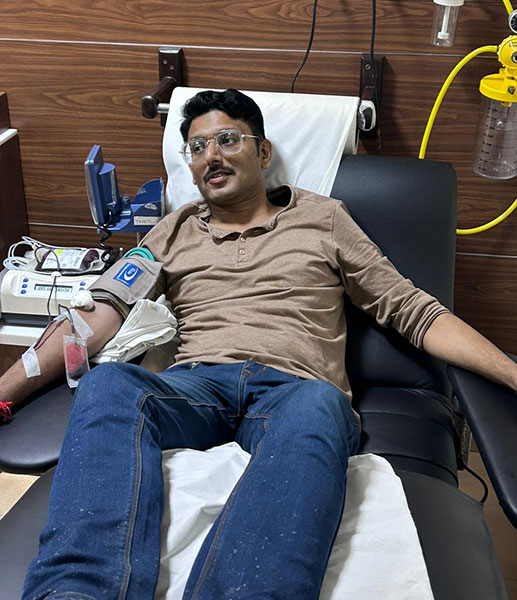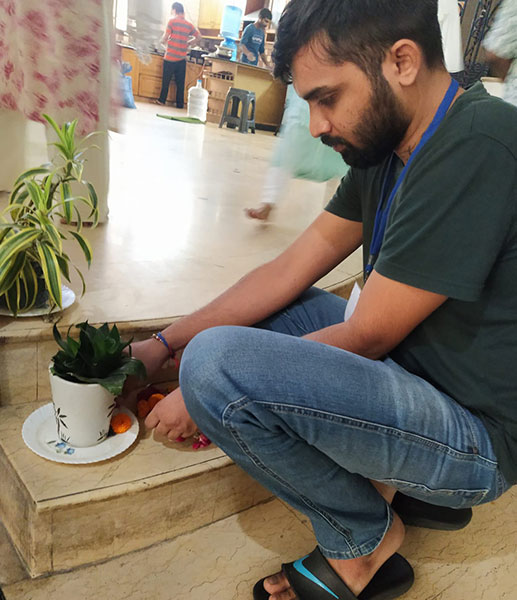Rehab Centre Noida is dedicated to helping individuals overcome addictions to substances such as drugs or alcohol. Our main objective as the best Rehabilitation Canter In Noida and the surrounding regions of Delhi NCR, Faridabad, Meerut, Agra, and Ghaziabad is to assist in the healing process.
We provide people the tools they need to live healthy, drug-free lives. Our focus is on emotional as well as physical health, and we offer full support to individuals who want to kick their addiction.
Our strategy seeks to provide each person with a sense of hope, dignity, and resilience. By providing a safe and encouraging atmosphere, we empower people to take back their lives, reach their greatest potential, and start a new journey.
Nasha Mukti Kendra offers programs designed to help individuals recover from various forms of addiction, physical injuries, or mental health issues. The journey to healing involves several carefully planned steps, ensuring that each patient's needs are addressed comprehensively. These are the essential steps to healing at a rehabilitation centre:

The first step in the rehabilitation process is an initial assessment and evaluation. This involves a thorough medical and psychological examination conducted by healthcare professionals.
The purpose is to understand the patient's condition, the severity of their addiction or injury, and any co-occurring disorders. This assessment helps in creating a personalised treatment plan tailored to the individual's specific needs.
For patients dealing with substance abuse, detoxification is often the next essential step. Detox involves the supervised withdrawal from addictive substances, ensuring that this process is as safe and comfortable as possible.
Medical professionals provide support to manage withdrawal symptoms and reduce the risk of complications. This phase can vary in length depending on the substance and the individual's dependency level.
Based on the initial assessment, a detailed treatment plan is developed. This plan typically includes a combination of therapies and interventions suited to the patient's condition.
The treatment plan is dynamic and may be adjusted as the patient progresses through their rehabilitation journey.
Therapy is the main part of the healing process. Individual therapy sessions provide patients with a private setting to discuss their issues and work through personal challenges with a licensed therapist.
Group therapy, on the other hand, offers a supportive environment where patients can share experiences and build a sense of community with others facing similar challenges. Both forms of therapy aim to develop coping strategies, enhance emotional resilience, and foster a sense of accountability.
Many patients require ongoing medical and psychiatric care during their stay at the rehabilitation centre. This might include regular check-ups, medication management, and treatment for any co-occurring mental health conditions such as depression or anxiety.
The goal is to ensure that the patient is physically stable and mentally prepared to engage fully in their rehabilitation program.
Best Rehab Centre often include life skills training as part of their comprehensive treatment programs. This training equips patients with the practical skills needed to lead a productive and independent life post-rehabilitation.
Topics may include stress management, time management, financial planning, and effective communication. These skills are essential for patients to maintain their recovery and integrate successfully into society.
Rehabilitation centres incorporate holistic therapies to support overall well-being. These can include yoga, meditation, art therapy, and physical exercise programs. Such therapies aim to heal the mind, body, and spirit, promoting a balanced and healthy lifestyle.
Preparing for life after the rehabilitation centre is a vital part of the healing journey. Aftercare planning involves setting up ongoing support mechanisms such as outpatient therapy, support group meetings, and follow-up appointments.
A well-structured aftercare plan helps to prevent relapse and ensures that patients have the resources and support they need to maintain their recovery.
Recovery is an ongoing process that doesn't end with the completion of a rehabilitation program. Continuous monitoring and support are essential to help individuals stay on track.
This can include regular check-ins with healthcare providers, ongoing therapy sessions, and participation in support groups.
At our Rehabilitation Centre In Noida, the process of healing is thorough and layered, addressing the social, psychological, and physical aspects of recovery. Patients are given the resources they require for a successful and long-lasting rehabilitation through an organised strategy.
This includes evaluation, individualised treatment, therapy, medical attention, life skills training, holistic treatments, family participation, aftercare planning, and ongoing support.
